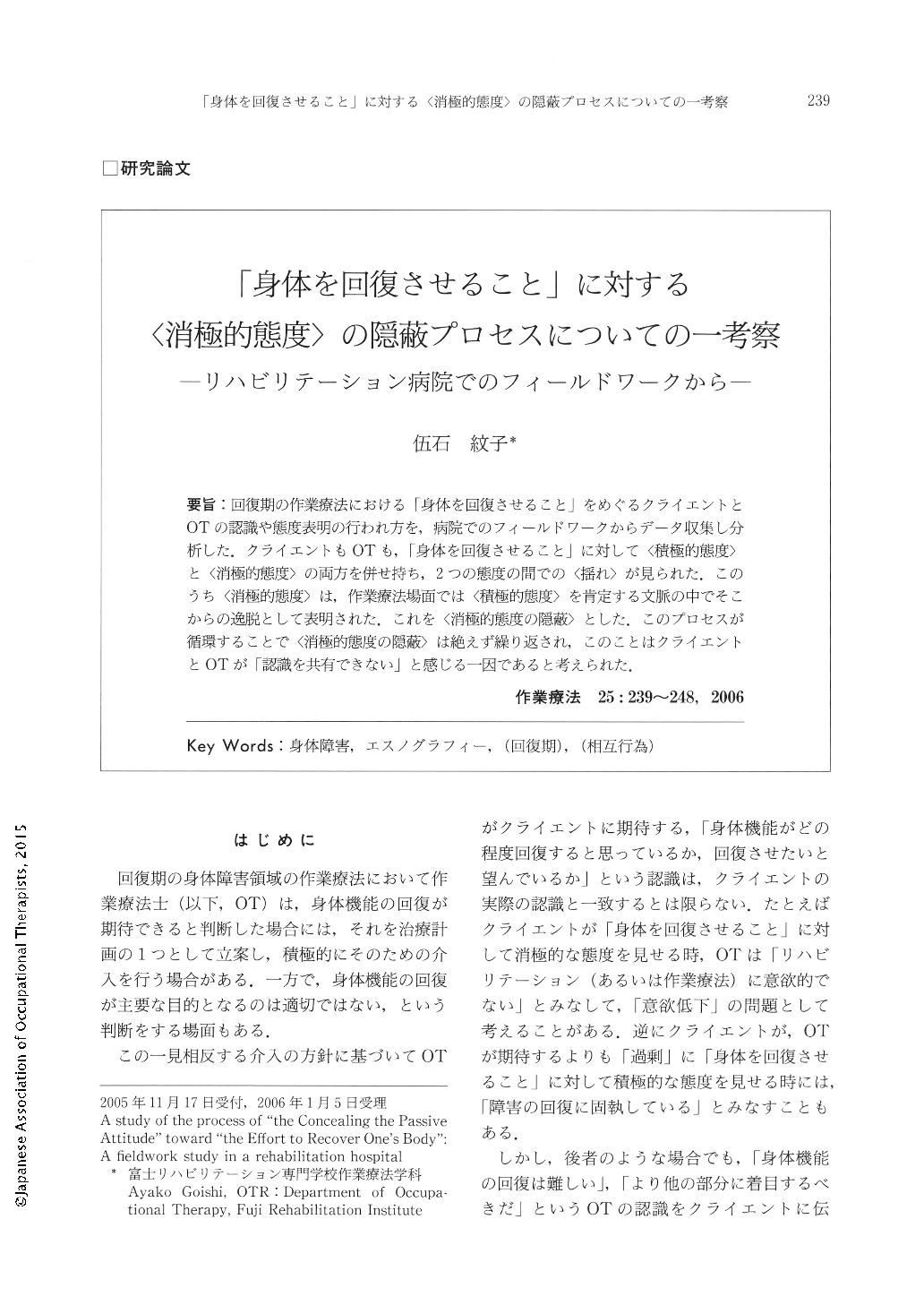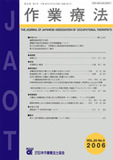Japanese
English
- 販売していません
- Abstract 文献概要
- 1ページ目 Look Inside
- 参考文献 Reference
要旨:回復期の作業療法における「身体を回復させること」をめぐるクライエントとOTの認識や態度表明の行われ方を,病院でのフィールドワークからデータ収集し分析した.クライエントもOTも,「身体を回復させること」に対して〈積極的態度〉と〈消極的態度〉の両方を併せ持ち,2つの態度の間での〈揺れ〉が見られた.このうち〈消極的態度〉は,作業療法場面では〈積極的態度〉を肯定する文脈の中でそこからの逸脱として表明された.これを〈消極的態度の隠蔽〉とした.このプロセスが循環することで〈消極的態度の隠蔽〉は絶えず繰り返され,このことはクライエントとOTが「認識を共有できない」と感じる一因であると考えられた.
Occupational therapists often adopt the recovery model in their therapy for clients with physical disabilities in post-acute stages—and/or in another situation, the therapists don't agree with regard to the recovery of body functions as the primary goal. Although therapists are hoping to share appropriate therapeutic techniques, they often fail to do so.
This study addressed the disagreements between clients and therapists. The purpose of this study was to investigate how the disagreements occur by exploring their attitudes toward "the Effort to Recover One's Body".
After completing 10 months of fieldwork in a rehabilitation hospital, the data were collected and analyzed, using a micro-ethnography approach. The data included the attitudes toward "the Effort to Recover One's Body" expressed by 11 clients and 7 occupational therapists.
In the interviews conducted by the author, both clients and therapists represented "the Active Attitude" and "the Passive Attitude" toward "the Effort to Recover One's Body". Simultaneously, they represented "the Wavering" between the two attitudes.
In the participant observations in occupational therapy sessions, "the Passive Attitudes" was represented just as the deviation from the context, which coincided with "the Active Attitude". This phenomenon was named "the Concealing the Passive Attitude".
Once a client or a therapist had concealed "the Passive Attitude", the other also developed an attitude of concealment, and this phenomenon occurred continuously. This paper suggests that this cycle might explain the inappropriate interaction between occupational therapists and their clients with regard to shared motives.

Copyright © 2006, Japanese Association of Occupational Therapists. All rights reserved.


